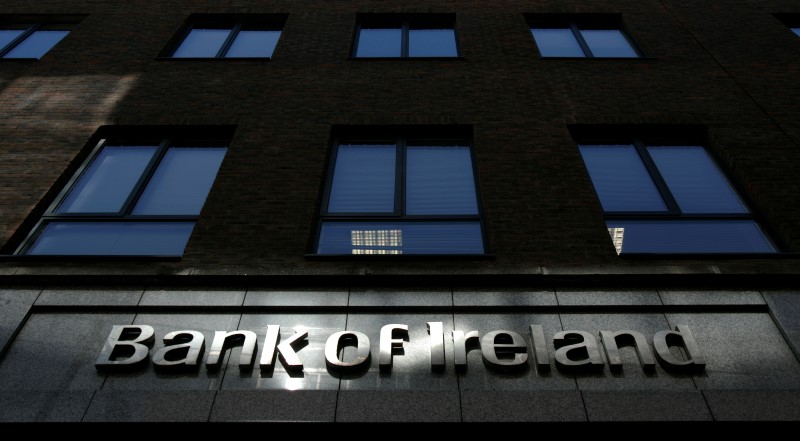By Padraic Halpin
DUBLIN (Reuters) - Bank of Ireland's (I:BKIR) plans to restart dividend payments next year could be impacted by external factors including Brexit which could hit the bank's momentum, Chief Executive Richie Boucher said on Friday.
Under the terms of its state bailout, Ireland's largest lender by assets is now free to reinstate dividends and said earlier this year it would aim to restart payouts alongside its full-year results for 2016, with an initial payment in the first half of 2017.
However the bank is more exposed to the British than any other lender in Ireland. It had a bigger mortgage book there at the end of last year than in Ireland and the UK accounts for a quarter of the bank's income.
"When we were talking to the market in February, we were looking at the momentum in the business, the capital, and we were talking with quite a degree of confidence about our ability to restart the dividend payments in the first half of next year," Boucher told Reuters.
"A very large economy in which we operate has made quite a momentous decision that has impacted on, for example, bond yields, and we're just having to be a little more cautious about the guidance we're giving," Boucher added. "We're not taking it off the table."
The bank, which led a return to profitability across the sector following years of losses after Ireland's 2008 banking crash, reported an underlying first-half pretax profit of 560 million euros (471.07 million pounds) versus 743 million a year ago.
Like-for-like profit was impacted by fewer one-off gains and a weaker sterling, reducing the value of its UK earnings when translated back to euros, but its net interest margin remained stable at 2.11 percent and impairment charge fell further.
The 14 percent state-owned lender continued to generate capital, offsetting a near-doubling in its pension deficit that lowered its core Tier 1 capital ratio a touch to 10.7 percent under so-called fully loaded Basel III industry rules, from 11.2 percent in March.
New lending rose 14 percent year-on-year to 6.9 billion euros, a better performance than rivals. Boucher said he had not yet seen a definitive Brexit impact in the UK, while spillover effects to Irish customers could be "quite containable".
"Inevitably there may be some impact on the momentum, you would have to anticipate that perhaps the level of growth might see a bit of a slowdown (from) ... the impact of Brexit," Boucher said.
